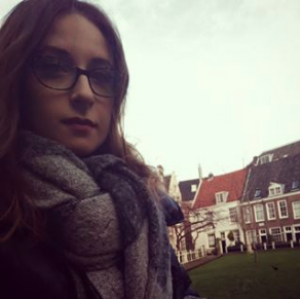Department of Dutch and South African Studies
version in Polish (wersja w języku polskim)
Dutch as a foreign language has been taught at our University since 1983 and a full BA programme has existed since 2007. This new programme is open for all interested high school graduates. No prior knowledge of Dutch is required – the courses start at level A0. The target level of Dutch at the end of the BA programme is B2.
Dutch studies are a culturally-oriented philological programme. The curriculum features Dutch as a foreign language (900 hours of classes throughout the BA programme in total) and academic courses, many of which focus on culture. These courses will provide you with cultural competence of highest level, thus allowing you to interpret various cultural phenomena from the Dutch language area (the Netherlands, Belgium/Flanders, the Antilles and former Dutch colonies). A series of courses that facilitate understanding contemporary culture includes an incredibly comprehensive module called Cultural history of the Low Countries. The courses in this module span a few semesters and comprise elements of history, philosophy, art history and Dutch as well as Flemish literature (including Dutch colonial literature) and a variety of thematic seminars about Dutch culture, literature, paintings and architecture. You can adapt part of the programme to suit your individual interests. Elective courses from the general University or Faculty offer are also included in the programme. You also decide on a course in another foreign language depending on your interests.
Practical Dutch classes are conducted by Dutch native speakers (from the Netherlands and Belgium) as well as Polish teachers of Dutch. Among our staff we have many people who have combined their Dutch studies with other specialities, for example art history, psychology, English, German, Slavic studies, architecture, etc. Thanks to this, we can provide our students with a high quality academic training combined with a comprehensive and interdisciplinary approach from our teachers.
Starting Dutch studies as a BA programme with an updated curriculum was a response to a growing need on the local job market. Thanks to huge investments from companies from the Netherlands and Belgium, the market expects educated employees with a good knowledge of Dutch language and culture combined with another foreign language. The acquired cultural awareness can be applied to the native culture to see the similarities and differences between the Polish and Dutch cultures. This awareness also shapes the attitude of openness and tolerance for other cultures. The current changes on the job market more and more frequently result in a multicultural work environment, so misunderstandings based on cultural differences easily occur. Thus, an attitude of openness, tolerance and the ability to reflect on one's own actions are qualities increasingly valued by employers in various industries.
As our students, you will be able to take part in the international exchange programmes CEEPUS (six-month studies at universities in Central and Eastern Europe) and ERASMUS (agreements with the universities in Brussels, Ghent and Leiden). Every year you also have the opportunity to obtain an international Dutch language certificate recognised by the Dutch and Belgian authorities and companies in the Netherlands, the so-called Certificate of Dutch as a Foreign Language (CNaVT, Het Certificaat Nederlands als Vreemde Taal), which verifies knowledge of the language and cultural competence at different levels.
Find more about the Department of Dutch and South African Studies on the department’s website [external link].
Head

Members



 prof. zw. dr hab.
prof. zw. dr hab.Jerzy Koch





 M.A.
M.A.Nancy Saeys
 dr hab.
dr hab.Michał Wenderski
 prof. dr hab.
prof. dr hab.Paweł Zajas